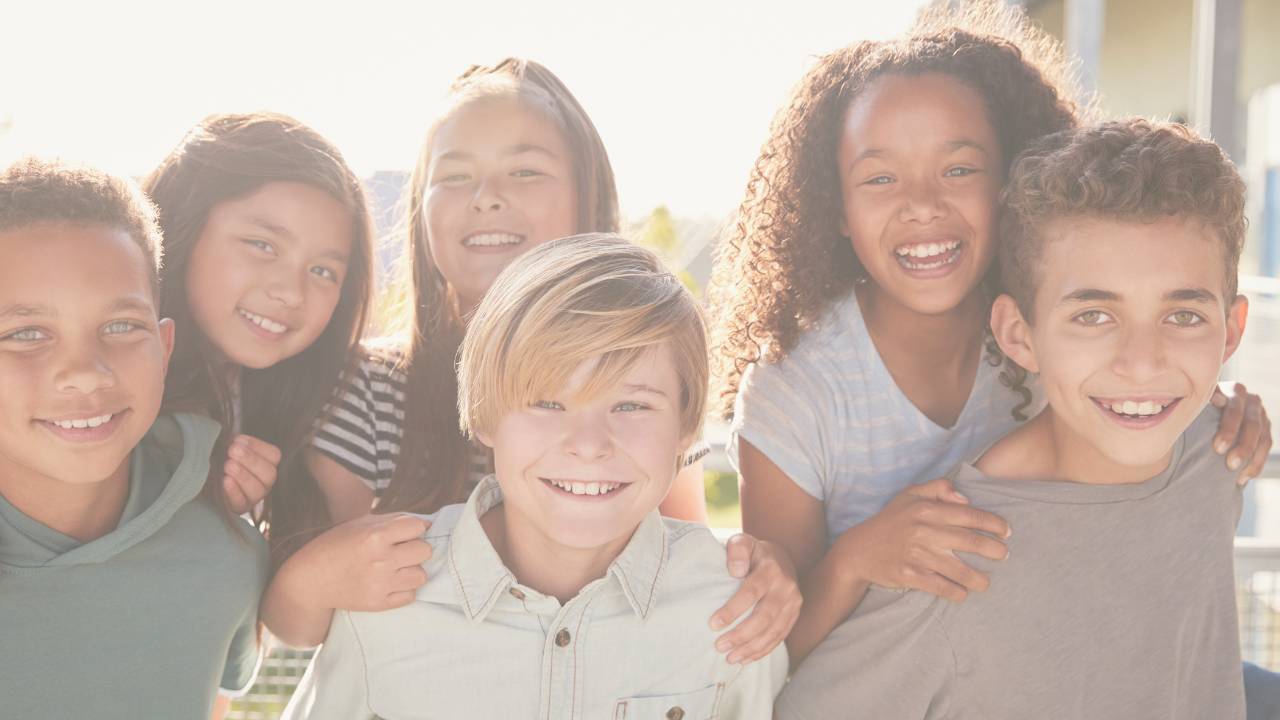The Greatest Protection Isn't Control — It's Connection

As parents, we all want to protect our kids, especially as they get older and the risks feel bigger. We want to keep them safe from bad friends, bad influences, and bad choices.
That instinct comes from love. But here's the hard truth:
The strongest protection you can give your child isn't control.
It's the relationship you build — the one that makes them feel safe coming to you, especially when they mess up.
Mistakes Are Part of Growing Up
The reality is: our kids will make mistakes.
They'll test boundaries, follow impulses, and sometimes get influenced by the wrong crowd.
You can't stop every mistake.
But you can decide what happens next:
- Will your child feel safe enough to come to you?
- Will they know they can tell you the truth without being shamed, punished, or shut down?
- Will they trust that even if you're upset, your love won't be on the line?
That kind of safety, emotional safety, is what keeps the connection strong. It's also what makes your voice more influential than the crowd around them.
A Conversation with a Mom
I was talking with a mom recently whose preteen is about to enter high school in a couple of years. She told me he wants to switch from a small private religious school to a larger public one.
She's scared. Understandably. She worries about the culture, the influences, the unknowns.
But here's what I shared with her:
Keeping him in a small school doesn't guarantee safety.
And sending him to a bigger school doesn't guarantee danger.
It's the relationship you have at home that is the greatest protection you can offer.
If he doesn't feel emotionally safe at home, if he feels overly controlled or like he can't be honest, he may still make risky choices.
He may not tell you about them, though.
But if you build your relationship on respect, openness, and trust?
Then he has an anchor.
He'll carry that with him into the bigger world. And when he stumbles, he'll know he can come home and be heard.
What Creating This Environment Looks Like
Now, creating this kind of environment doesn't mean letting go of all boundaries or tossing everything to the wind.
It doesn't mean embracing the "F.A.F.O." style of parenting (that's another blog 😉).
It does mean allowing your child to explore, try things, make mistakes, and sometimes learn the hard way.
And that can feel terrifying.
This is where the E in my C.A.R.E.S. Approach to Parenting™ — Engage — matters.
Engage means:
- Having empathy for your child's experience
- Seeing things from their perspective, even when you disagree
- Respecting the reality that they are having their own experience
- Actively listening
- Asking questions
- Staying quiet while they talk
- Listening to understand rather than to respond
And here's the hard part:
You don't have to like what you're hearing.
A lot of the time, you won't.
That's when the fears show up.
The mental movies.
If they do this, then that will happen… and I can't let that happen.
(This is where the C in the C.A.R.E.S. Approach to Parenting™ — Catch Yourself — is so powerful. It helps you notice your own spiraling thoughts and stay present, rather than reacting out of fear.)
But when you let them share fully, and feel seen, and they know you've taken the time to understand their perspective?
Something powerful happens.
They become far more likely to be receptive to what you have to say.
To your guidance.
To your influence.
That's where your real parenting power lies.
Not in control, but in connection.
Connection Over Control
We don't protect our kids by limiting their world.
We protect them by expanding our relationship so they trust us with theirs.
That's the kind of influence that lasts.
That's what allows us to guide them, not just control them.
For You
Pause for a moment and ask yourself:
- Does your child feel safe enough to come to you when they've made a mistake?
- How can you show them this week that your love isn't conditional on "getting it right"?
Because in the end, connection, not control, is the greatest protection you can give.
Parenting through fear isn't easy. I'm in this work every day myself, and I know how real the pull toward control can be.
I hope this reminds you that you don't have to do it perfectly.
Just showing up with connection, even in the messy moments, matters more than you think.
You've got this.
xx
🤟🏻
Claire
P.S. Fear has a way of sneaking out sideways, and for many of us, it comes out as yelling. If that's true for you, I created a free guide to help: 3 Reasons Why You're Yelling — and What You Can Do Today to Stop.
Stay connected with news and updates!
Join our mailing list to receive the latest news and updates from our team.
Don't worry, your information will not be shared.
We hate SPAM. We will never sell your information, for any reason.

